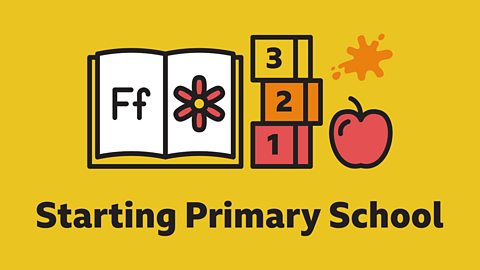This article was first published in April 2020
In a 2019 government survey 8% of under-fives (over 300,000 children) were found to have never learnt a song, poem, or nursery rhyme.
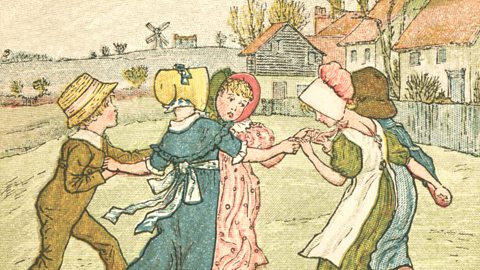 Image source, GETTY IMAGES
Image source, GETTY IMAGESOne, two buckle my shoe
You know what comes next - donÔÇÖt you? Even if itÔÇÖs been the best part of your lifetime since you last heard it, the next line has popped into your head right on cue.
ThatÔÇÖs the incredible staying power of a nursery rhyme.
From Ring-a-Ring to Rock-a-Bye, theyÔÇÖre not just hiding in the deeper recesses of your mind, it seems like humanity as a whole just canÔÇÖt seem to get enough of them ÔÇô while many of our favourites date back a few hundred years or so, itÔÇÖs thought that cultures, no matter how different from one another, have sung songs to their children for a millennia. But why?
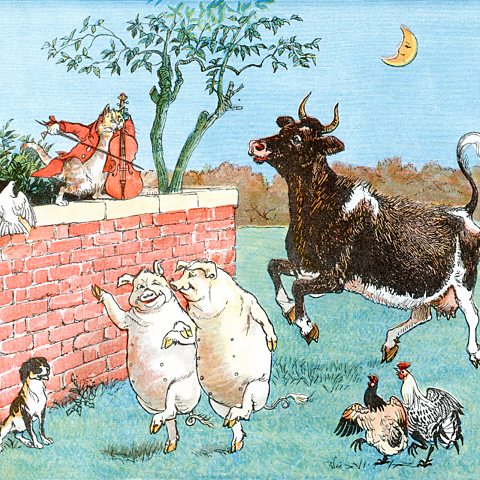 Image source, GETTY IMAGES
Image source, GETTY IMAGESWell, some - Twinkle Twinkle Little Star, for example - are great for putting children to sleep, which is a universal motivation for parents, with their soothing imagery and tune. However, there is a lot more that nursery rhymes can offer
Tuneful repetition is a brilliant learning tool and there is much more for a young child to learn from nursery rhymes than you might think. Even if you think what youÔÇÖre singing is totally nonsensical, a listening child will pick up new words, meanings, numbers, and an awful lot of knowledge about the world around them.
Some nursery rhymes also have actions ÔÇô Wind the Bobbin Up, or Pat-a-Cake, for example - and these are great for improving motor skills. ItÔÇÖs easy to forget, under-fives arenÔÇÖt great at using their limbs at the best of times, so any chance to practice their coordination is a good thing.
 Image source, GETTY IMAGES
Image source, GETTY IMAGESThere really are no downsides to singing songs for children, and parents and carers reap the benefits all over the world. You might be familiar with Wee Willie Winkie, a rhyme that was originally written in Scots language for children who stayed up a little too late, but what about the comforting Welsh lullaby Si Hei Lwli Mabi, or the Sri Lankan Me Gase Boho, a bedtime ode to the orange tree?
Nursery rhymes are as diverse as their origins and while some are rather self-explanatory ÔÇô no prizes for guessing what Ten Green Bottles is about ÔÇô others, particularly older rhymes, are more cryptic, as if theyÔÇÖre from a different world or time entirely.
 Image source, GETTY IMAGES
Image source, GETTY IMAGESMany of us know the supposed grim secret behind Ring-a-Ring-a-Roses, but how about Pop Goes the Weasel? This well-known tune is thought by some to be a Victorian lament to overspending, on tupenny rice and treacle in this case, and its unfortunate consequences ÔÇô ÔÇÿpop goes the weaselÔÇÖ is thought to be cockney slang for pawning your best coat for extra funds!
Not a great example to be setting for children, perhaps. This was precisely the reason that, in the 1940s, the British Society for Nursery Rhyme Reform set out to scrutinise hundreds of traditional rhymes for violence and other unsavoury elements that they deemed unsuitable for children.
As Three Blind Mice still ends with the farmerÔÇÖs wife chopping off their tails, we can assume they werenÔÇÖt entirely successful.
But, whichever tune you choose, nursery rhymes are an age-old, proven method of making parenting a little easier. So try some of the classics or make up your own  who knows, parents could be singing along to your words in centuries to come
For further information check out the rest of which has lots of ways to help prepare children for different aspects of school life ÔÇô both practically and emotionally.
Nursery rhymes to try at home
Great nursery rhyme ideas and advice from real parents to help your child with their learning and development at home.
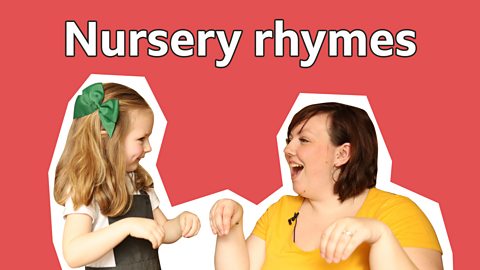
Bud's Number Garden
Join Bud the bee, explore his magical garden and practise recognising numbers, counting, sequencing and much more!
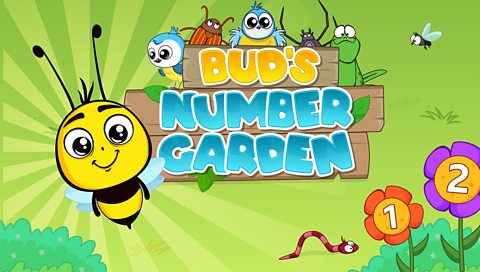
More Starting Primary School videos and articles
Head to our homepage to help you and your child prepare for starting primary school and thrive in school life.
